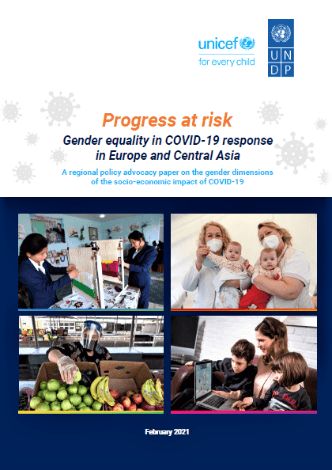The COVID-19 pandemic has shaken the world of work to its core, forcing people to adapt and persevere in unprecedented ways. Prior to the pandemic, technology and globalization were already changing the nature of work, from creating jobs that require STEM skills to making current jobs obsolete.
In the Europe and Central Asia region, UNESCO estimated that 50 million children had been affected by partial or full closures of school by March 2021. The situation especially affected girls and young women and decades of progress in gender equality and education is currently threatened.
The post-pandemic world looks different than before for women and girls. Women and girls are most at risk to lose their jobs due to automation. Girls' safety and future is at stake. The school lock downs around the world led to millions of girls risking to drop out of school for good while child marriage, gender-based violence and other violence against girls are on the rise
To address these challenges, STEM presents opportunities for women’s and girls' education and economic empowerment. Online and distance learning and training offer innovative ways to create space for learning new digital skills and achieving digital literacy. These efforts can be amplified through gender-sensitive policies and programming among governments, the private sector, NGOs and educational institutions.
COVID-19 has given the international community a momentum to reimagine STEM for all women and girls: STEM4ALL.
 Report: Progress at risk: Gender equality in COVID-19 response in Europe and Central Asia (UNDP
2021)
Report: Progress at risk: Gender equality in COVID-19 response in Europe and Central Asia (UNDP
2021)
Freelancing during the COVID-19 pandemic
COVID-19 measures such as online learning and closing childcare centers, have shifted more care work to women, forcing them to extend themselves to balance responsibilities or reduce or leave paid work, with little to no social protection in the event of changes in the duration of contracts or non-extensions. In parallel, the COVID-19 pandemic and the social distancing measures adopted by governments have accelerated a trend toward distant work, potentially leading to further globalization of projects and possibilities for offshore freelancers in STEM, especially in ICT. When properly remunerated, freelancing and blended work regimes may create
Sign up to receive STEM4ALL updates and news as we continue to grow and expand.